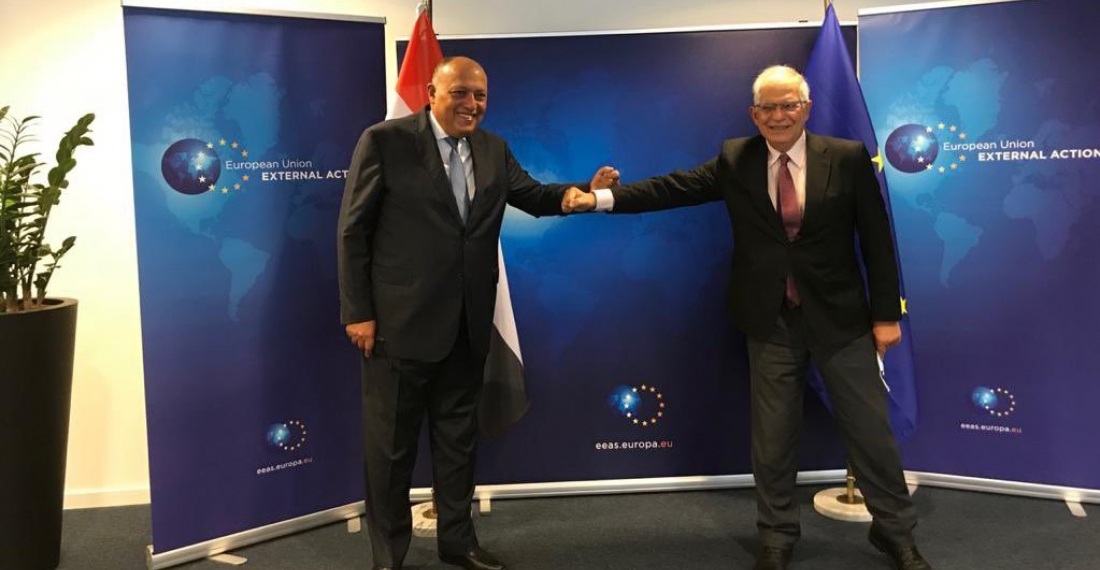The Egyptian foreign minister, Sameh Shoukry, held meetings with several European officials in Brussels in the last days as part of an effort to explain Egypt's position on the issue of the Grand Ethiopian Renaissance Dam (GERD). Shoukry affirmed the importance of outlining a roadmap to reach a binding agreement on the operation of the dam.
According to Ahmed Hafez, the Egyptian foreign ministry spokesman, Shoukry presented the results of the last Security Council meeting, expressing Egypt’s appreciation for the recent statement issued by the European Union and criticising Ethiopia's announcement that it was beginning the second filling of the dam without prior agreement.
Shoukry also urged his European counterparts to understand the importance of the issue for Egypt, and to work to persuade the Ethiopian side to show flexibility.
Shoukry also expressed Egypt’s appreciation of the EU statement last week criticising Ethiopia for commencing the second filling of GERD without reaching an agreement with downstream countries Egypt and Sudan.
Last week the EU said "a jointly agreed clear roadmap is urgently needed, setting out the timeframe and specific aims of the negotiations for talks to resume as soon as possible, and to continue on a regular basis thereafter".
The EU also called upon the three parties to resume negotiations under the aegis of the African Union.
Read the statement by the spokesperson on the announcement of the second filling here.







